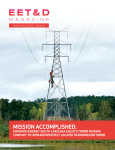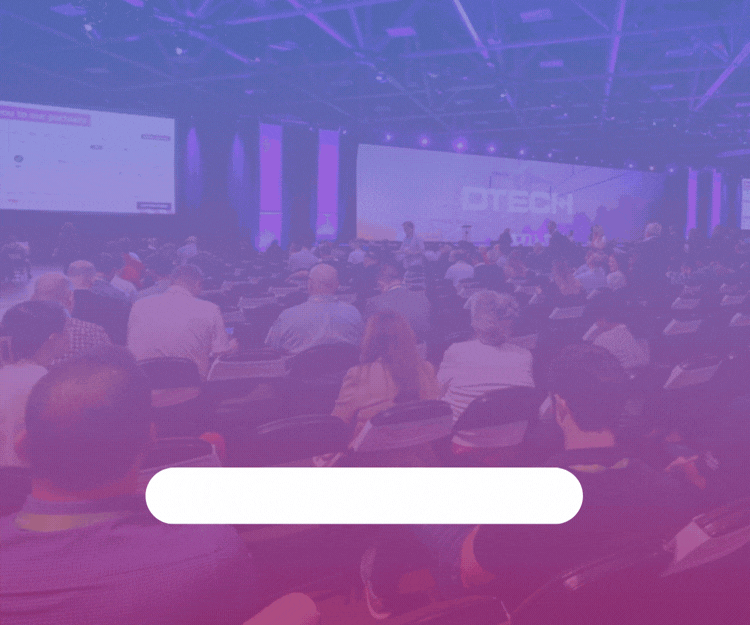Introducing (or Getting Reaquainted with) Felicia Kohlenberger, chief human resources officer at S&C Electric Company. We asked Kohlenberger to talk about her work at S&C and how the role of HR is changing.
A bit about me
As chief human resources officer, I am responsible for the entire HR function and our Food Services department. This covers all aspects of HR, including Payroll, Benefits, Total Rewards, Human Resources Information Systems (HRIS), our Human Resources Business Partners (HRBPs) who support our team members, our Talent Enablement group — which creates the development programs and classes that we offer — and our talent acquisition teams who are responsible for hiring.
I previously worked at a technology company, but this is my first time working in the energy sector. One of the things I really pride myself on is being able to come into a variety of different industries and apply what I’ve learned. I've worked in insurance, done consulting and held other roles. The first thing that I do is get up to speed on the business. Then I conduct an organizational assessment.
In my experience, I’ve found a lot of similarities no matter where I go. For instance, it could be that you need to have more women in leadership positions, or you need to have more people of color in positions, or you need to work on leadership development. One industry may be a little bit more ahead of the game than others, but there are very similar themes that have existed and continue to exist across industries.
Coming to S&C
I joined S&C in September 2021. I was at a time and place in my career where I wanted to work for an organization that was doing something meaningful. I got a call from a headhunter – at the time. I didn’t know who S&C was, what they did, or their impact on the electrical grid.
When I came out and met S&C CEO Anders Sjoelin and the management team, I had a chance to get a sense of the company’s culture. The strong safety and values-driven culture and the people I met made me feel like this was a place where I could make a difference. The leaders at S&C enjoyed coming to work and were passionate about their jobs. They wanted to take a highly successful company from where it was and propel it to become bigger and better. I felt that I could take a very active role in that.
Challenges early on
Early in my career, I found it a challenge to be vulnerable. By embracing vulnerability, I began to understand how this can create an environment that nurtures trust and authentic, honest conversations. An interesting read on creating safety and trust within teams is a book called “Leaders Eat Last: Why Some Teams Pull Together and Others Don’t.” It’s by Simon Sinek, and I encourage every leader to read it.
I've often found leadership development to be challenging because for a leader to be better and do better, they have to be self-aware and, in some cases, humble, vulnerable and willing to say
“I was wrong,” “I’m sorry,” and “Thank you.” Sometimes, that's really difficult for people to do.
The changing role of HR
Over the past five years, I've seen many changes, but I’ll talk about five major ones.
1. First, the pandemic brought a fundamental shift in how and where we work.
In the past couple of years, this whole concept of remote working, hybrid working and flex time has been a major shift in HR. Even today, companies are still trying to get their mind wrapped around how to provide the flexibility that employees are demanding while also supporting the needs of the business.
2. Second, the use of technology and the tools available have changed dramatically over the last five years. They are shifting HR from a manual Excel spreadsheet kind of space to automated systems where employees can get basic requests, like benefit changes, met via self-service. This enables HR professionals to refocus on meeting the larger needs of employees.
3. Also, the way people think about HR professionals has changed. Many years ago, there was a semantic shift from the term “personnel” to “human resources.” Today, the new term describing HR professionals is “people scientists.” Imagine my title being a people scientist! It’s funny but also an accurate description. My job is to diagnose problems, be involved in organizational design that supports team development and onboarding new leaders. All of these areas are where HR should be focusing – how do I improve the employee experience at work?
We need more HR people who understand the role of being an advocate for everyone, especially underrepresented people. In my opinion, HR professionals need to be able to connect with people in a very personal way, know how to leverage the resources available and realize that they don't have to be a psychologist to make a difference. Even if I can't help, I have the emotional wherewithal to listen, to be empathetic, and when appropriate, to do a proper handoff to our Employee Assistance Program (EAP) services or another HR person. I try to do this in a way that has the most positive impact on the employee’s experience.
4. Another thing that has changed is the way we think about emotional well-being. This is different than it was five years ago. Now, the concept of good mental health at work goes hand in hand with good leadership and good management. I think a greater shift now is with employees wanting the workplace to be a place of mental well-being. Research shows that organizations that have healthier mental well-being and leaders who are connected with their team on a personal level are more productive.
5. The last change I'll mention is around diversity, equity and inclusion (DEI). DEI has been top of mind for many years, and it's evolved. In addition to diversity, equity and inclusion, we are now talking about belonging. If you think about it, this goes hand in hand with emotional well-being. When you bring people into an organization, they want to feel a connection and a sense of psychological safety. I strongly believe that when people feel like they belong at work, they are more productive, motivated, engaged and more likely to contribute to their fullest potential. I’m optimistic that the desire for belonging within organizations will not only increase but will reshape the employee experience.
Diversity is no longer just about gender minorities, ethnic groups, or people with disabilities. It's much, much deeper than that. Companies now are looking at DEI and B (the belonging piece) very differently, and they are connecting this to emotional well-being.
Artificial intelligence and HR
I am still learning about AI and its possibilities. It’s been predicted that AI will help improve the quality of hires and revolutionize the way HR functions work today by automating repetitive tasks. I look forward to seeing how different tools will allow HR to assess talent more effectively.
With the trend towards a People Sciences approach, I think we will need more HR people who understand data analytics and use that to tell a story and bring businesses along. That said, while I love having tools to assist, I'm not ready to turn over the keys to artificial intelligence, at least not now. For me, human resources is all about that human-to-human connection. I’m not convinced that people can be defined by percentages of data.
Giving back
I recently became a board member for a wonderful organization called Holy Family Ministries. They provide educational opportunities for children, youth and families in Chicago’s under-resourced neighborhoods. The intent is to help these students excel academically, expand their life experiences and become exceptional leaders.
Earlier, I mentioned my passion for developing leaders. This organization really does that — they're starting with young people and are really helping these families and children become better citizens and better leaders – the future leaders in the world. What better place for me to become a board member and to really help them with that?
As I looked for where I could give back and continue to make an impact on this world, I was blessed enough to find an organization that fits within my personal values and allows me to help shape the minds of the potential future leaders of this organization.
I just love it. It’s working with children, young adults and families together. I'm pretty excited about that.
Forecasting challenges
I think the greatest challenge is attracting the right people and retaining them. Companies are going to have to get creative. I mentioned earlier about working remotely and being flexible. This means that companies need to be open-minded. They need to understand that when seeking dynamic talent for a role, the talent does not have to be physically located in any one place. They need to cast a wide net and reinforce that with strong employer branding.
Once you can attract top talent or those with high potential, then the question is, how do you retain them? It is still an employee market, and I strongly believe that not everything is about money. Companies need to be sensitive to the employee life cycle. It’s the attraction, the onboarding, the development of employees’ career paths…it's all of that and even includes offboarding when the employees retire or exit an organization to join another company.
This is why you need to have talented HR people to help at each stage. In addition to technical skills, as I mentioned previously, they need to be emotionally equipped to be those advocates and make those genuine, authentic connections.
Finally, I firmly believe that we all need to master emotional intelligence. People aren’t choosing to stay with the same company for 20-30 years as they did before. The employee experience, which includes the relationships at work, matters a great deal and can be the one thing to get an employee to want to stay.
Meeting those challenges
I think the industry really has to continue to focus on DEI and belonging and creating emotionally intelligent leaders. Having diverse employees with different experiences “at the table” allows for opportunities for creativity and problem-solving. Also, leaders set the tone of their organization. If they lack emotional intelligence, it could result in low employee engagement and higher turnover. Lastly, we have to rethink how we attract and develop talent. When you put employees in positions where they’re on stretch assignments, they must have the support needed to grow, develop and succeed.
Sometimes you need to challenge your recruiting partners to do better if they are not giving you the talent mix you are looking for, or seek out new recruiting partners that can reach a more diverse pool of candidates. You have to look at your pipeline, sources and partnerships and get creative. You have to “court” and build a relationship with candidates. They may not be ready to join your team right away. That doesn't mean that you stop. The whole attraction piece is a dance, and it's a dance you need to do. You have to become very good at it.
The future for women in electric energy
At DISTRIBUTECH, S&C sponsors a diversity panel and are now giving out a diversity award – both have been very well received. At the conference, I've had people come up to me as I'm walking around wanting to talk about DEI —and so there is a need, a desire and a truly an opportunity for companies to do more and make a difference. So, I do believe it's just that people need a playbook, or they need to be able to sit down and have a vulnerable and uncomfortable conversation with someone and say, help me, or I don’t understand X.
Why HR matters
HR can be a great resource for business leaders. Business leaders have to bring HR in and be able to take the time to explain the business and the rationale.
I always communicate that I don't want people to view me as just HR — I'm a business partner. I'm an extension of your team and your department. When people can wrap their brains around that, it makes it very easy to sit down and have a conversation with HR, even to say, “Hey, Felicia, I made a mistake. I need your help. Or I'm trying to figure something out. I don't know where to begin.”
We can work together to figure it out. But business leaders need to be willing to do the reach. I think a lot of times, people think HR has the radar on – that we automatically know where to reach, and in reality, we don't. Leaders have to be assertive enough to say, “I need help,” to get that conversation started.
More than a seat at the table
It’s not only important for HR to have a seat at the table, it's important for us to have a voice and to promote what we are passionate about. As an HR leader, there are three people that I encourage employees to seek out. I call them SAMs. First is a sponsor. This is a person in your organization who holds a position of great power and influence. Next is an advisor. This person can facilitate introductions to those that can help move your career forward. Lastly, seek out a mentor. This person can tell you the good, the bad and the ugly about yourself.
During your career, everyone should have a SAM—especially women and underrepresented employees. Having a SAM can help you successfully navigate the corporate landscape. Find them because they will help you. They'll help you navigate things when things get really, really bumpy… and they WILL get bumpy.
With those three roles in place, if you make a mistake, you’re covered versus trying to figure it out yourself. I cannot overemphasize how important it is to have this support system in place. They will give you the honest feedback that nobody else will give you, and they will give it to you in a way that will help you grow and develop. They have your back. It's incredibly important.
The thing I’m most proud of in my career is that I've always stood up for what was right and for those who are underrepresented. That is my purpose in life, and I work on it every day. Throughout my life, I learned how to be more empathetic. I realized that a little kindness goes a long way. Sometimes people just need a hug, a little bit of TLC, and to be heard.
I firmly believe that we need to cultivate kindness. When you think about it, that’s not easy. Cultivating kindness does not mean weakness. It doesn't mean that you just let everybody walk over you. Kindness is strength. There is something very powerful about that, and I try to emphasize that this is all related to leadership development. If people treat each other respectfully and with dignity and have a little empathy, it goes a long way.

Felicia Kohlenberger leads S&C Electric Company’s Human Resources organization. This includes total rewards, talent acquisition, talent management, diversity, equity and inclusion, employee relations, leadership development and HR operations and technology.
She has been a leader in human resources for nearly three decades, focusing on driving business results through the unique intersection of strategy, talent and culture.







